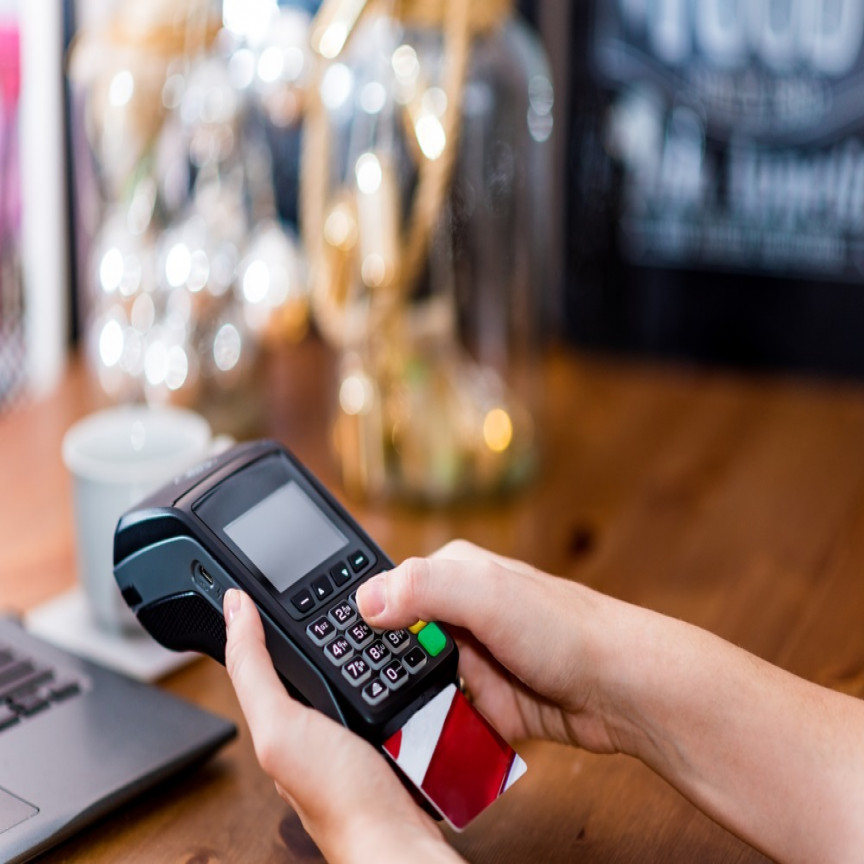The COVID-19 pandemic has led to one of the most challenging times for the world where people are urged stay indoors, businesses must remain shut, and major economic activities of non-essential nature must cease in order to save lives and contain the spread of the coronavirus.
Businesses that remained open, especially essential businesses in retail, have been in action all this time of lockdown. Offering quality service while ensuring the health and safety of the workers as well as customers at the stores has been an added challenge for the Australian retailers in current times.
Retail giants like Woolworths Group Ltd (ASX:WOW), Coles Group Limited (ASX:COL), and Domino’s Pizza Enterprises Limited (ASX:DMP) have been at the forefront of managing smooth flow of their daily operations while ensuring good health and safety for their employees.
Record Surge in Australian Retail Turnover
The Australian retailers have enjoyed a significant increase in their respective revenues with the Australian retail turnover surging 8.2% in March 2020 on seasonally adjusted terms. According to the initial retail trade data, which will be subject to revision, released by the Australian Bureau of Statistics (ABS), the latest numbers highlight the strongest seasonally adjusted rise ever published in a retail trade publication.
The current numbers had outclassed the surge of 8.1% that was recorded in June 2000 when households brought forward expenses ahead of the GST enactment. The current preliminary numbers reflect the unprecedented demand in March in the food retailing industry, with impressive sales across supermarkets, liquor retailing and other specialised food.
In line with the news that surfaced in the market regarding panic buying of necessary supplies like toilet paper, monthly turnover for products such as toilet and tissue paper, and rice and pasta just doubled during the month. In addition to this, robust sales were also experienced by retail players selling items related to home offices.
The incidents of panic buying have been reported at multiple retailers across the globe. Let’s look at the safety measures adopted by retailers in the current scenario where the government is encouraging social distancing, but panic buying is likely to flout the norms.
Health and Safety Measures for Retail Chain Employees
Given the backdrop of a spectacular increase in the Australian retail turnover, you might be wondering how the retailers handled such traffic at the stores while ensuring the safety of all at the same time.
Every retailer has prioritised health and safety of its people since COVID-19 is a highly contagious disease. Ten points to ensure health and safety at retail stores are as follows:
- Accept card payments or e-payments only and go cash-free to avoid making contact through cash exchange with customers.
- Ensure ample distance is maintained by standing at least 1.5 metres distance away from customers or install plexiglass screens at cash registers to protect workers who cannot do so.
- Make sure that social distancing measures are in place and followed by the customers as well as the ground staff involving the display of signage, floor marking, register use and customer flows.
- Ensuring the ready availability of hand sanitiser to all the staff approved by the Health Department to maximise hygiene and minimise the vulnerability to come in contact with the coronavirus.
- Support workers with gloves and personal face shields wherever requested or required and ensure they are replaced/recycled at regular intervals.
- Avoid handling of customer bags by providing bags free of charge for each purchase and abstaining from using customers’ used bags unless the customer bagses it themselves.
- Ensure that cleaning and sanitisation of workstations and personal protective equipment are carried out on a regular basis as these could be the most likely areas of contact with COVID-19.
- Maintain enough security to support in imposing social distancing, customer volumes, purchase limits, access limits and in dealing with unreasonable customers and ensure smooth flow of store operations.
- Develop and follow a zero-tolerance approach to customer violence and abuse and ensure no one takes any undue advantage while shopping like over buying stuff and visiting stores at timings set for old age customers etc.
- Safeguarding a welcoming and positive behaviour of employees at the store as well as pursuing customers to show good conduct.
How are Retailers Dealing with Changing Online Order Landscape?
On the other side, retailers have also experienced a substantial increase in the number of online orders due to a shift in consumer buying behaviour. People staying inside their homes want their items to be delivered at the doorstep. This not only calls for an increased burden on the workforce or the retailers but also demands that the delivery of the items is made through the safest way possible.
To meet the soaring demand, retail giant, Woolworths has planned to open tens of thousands of extra weekly home delivery windows for its online customers where hundreds of Woolworths Supermarkets located across Australia shall fill in for the excess capacity.
Also, over 5,000 new delivery drivers have been inked by Sherpa and Drive Yello on their on-demand platforms to assist in meeting the escalating demand for online groceries. Furthermore, Woolworths has now doubled its online capacity over the past month to meet the recent intensifications out of the current home delivery ecosystem.
The strategy of adapting to changes in consumer behaviour, community expectations, various support measures and local trading conditions have helped Domino’s Pizza to navigate through all operating markets.
Moreover, prioritising the safety and well-being of its team members and customers, Domino’s Pizza Enterprises Ltd has been investing in initiatives to put people first, for example:
- Contactless thermometers to confirm team members are fit and well for work
- Hand sanitiser for stores to ensure all time hygiene
- Physical barriers and other social distancing material
- Additional personal protective equipment
Coles Group Limited has also resorted to click and collect and home delivery systems after navigating for weeks through incidents of panic-buying, reduced hours and intolerable behaviour to staff. The increasing cases and complaints, coupled with stricter social distancing guidelines, have compelled the retailers to instil more sincere ways of doing businesses while ensuring least or no contact with the customers.
With the changing preferences of the customers, we are witnessing a quickly evolving and dynamic phase of the retail industry as its dependence has increased on technology in maintaining a smooth and efficient flow of operations.
In coming days too, as the restrictions ease and the sale of non-essential items increases, there are expectations that online orders might flood in for the retailers. Ensuring the safety of the employees and the customers shall be a challenge for the retailers for quite some time as the COVID-19 does not seem to go away soon.






